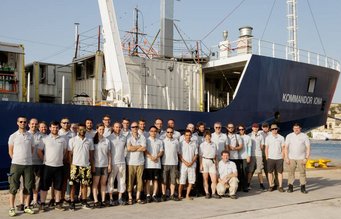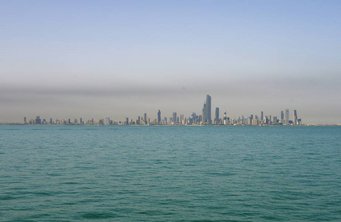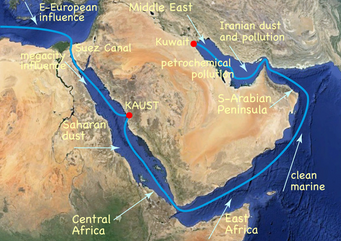Expedition to study air quality and climate change around the Arabian Peninsula successfully completed
An international team investigated interactions between gaseous and particulate pollutants with aerosol particles of dust and sea salt in the atmosphere
After a good two months and nearly 20,000 kilometers at sea, an adventurous expedition to study air quality and climate change was completed. On September 3rd, the research vessel Kommandor Iona docked in the port of Seyne-sur-Mer in the South of France and discharged the members of the AQABA scientific expedition. (The acronym is short for Air Quality and Climate Change in the Arabian Basin). During two months, an international research team coordinated by the Max Planck Institute for Chemistry (MPI for Chemistry) in Mainz had collected data on the chemical composition of the atmosphere along the ship track between Europe and Kuwait.
The aim of the research project was to study the influence of air pollution on public health, the climate and the natural environment. Scientists from the MPI for Chemistry were joined by colleagues from the Kuwait Institute for Scientific Research and the Cyprus Institute as well as from Saudi Arabia, France and the USA.
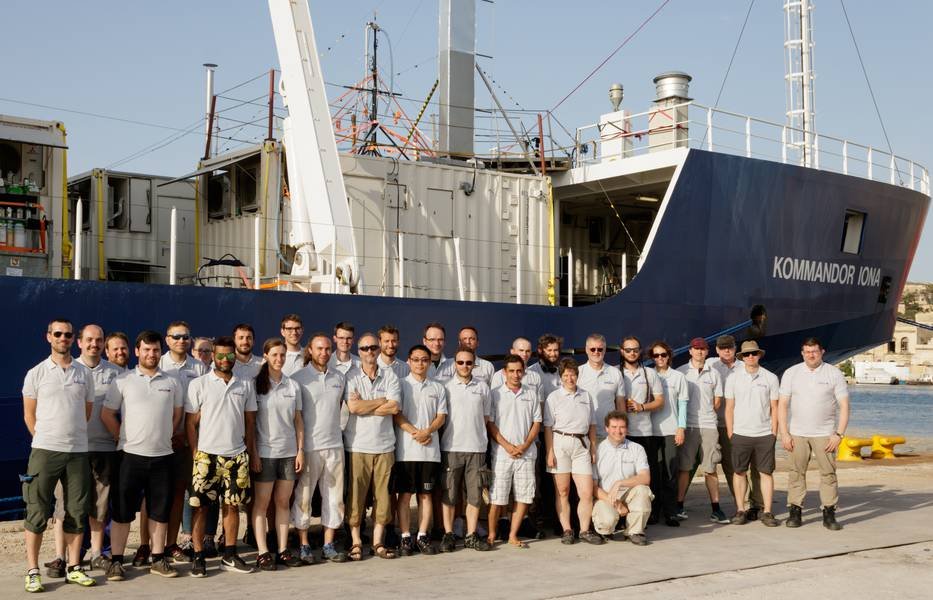
The AQABA mission took the scientists on an expedition from Europe around the Arabian Peninsula to Kuwait, during which they encountered a unique spectrum of environmental conditions. In this region, intense sunlight results in highly active photochemistry, meaning that the varied conditions constituted a kind of “natural laboratory”. In the Arabian Sea, for example, the researchers encountered clean, pristine air, whereas in the Red Sea they met polluted, dusty air from Africa. In the Middle East, the air was polluted by urban outflow and exhausts from ships. In the Persian Gulf, by contrast, the main pollutants were from petrochemical emissions.
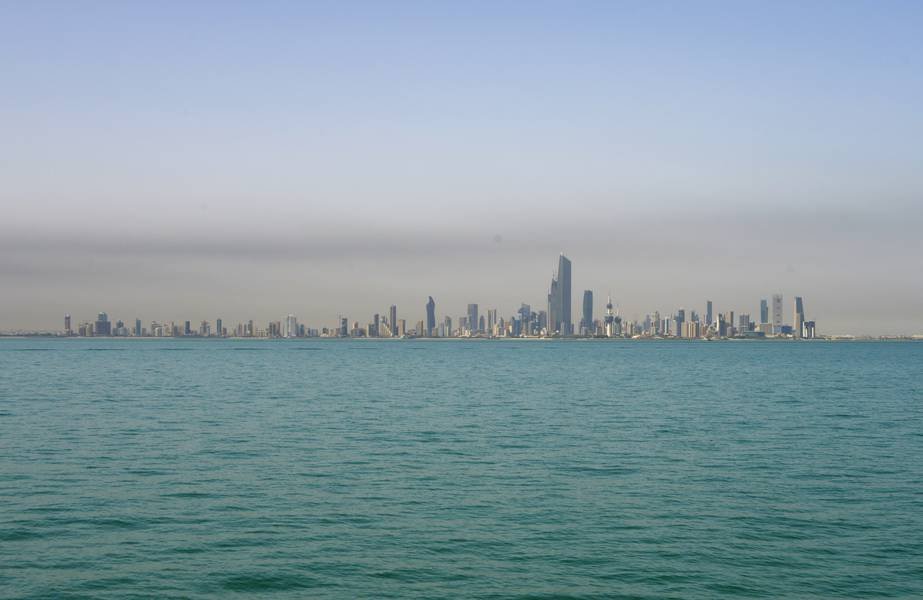
The first results of the AQABA measurements already show the critical role played by air pollution: “Air pollutants change the chemistry of natural dust in the atmosphere. This, in turn, affects the hydrologic cycle, since dust particles act as condensation nuclei for cloud droplets, which can change precipitation and the climate,” says Jos Lelieveld, Director at the MPI for Chemistry, Professor at the Cyprus Institute and head of the expedition. In addition, air pollution can impact the flora and fauna, because it changes the mineralogical composition of the dust particles, he explains. The particles become enriched with reactive nitrogen, sulphur, iron, phosphorus and toxic substances, which deposit onto marine and land ecosystems. The AQABA measurements also provide critical checks for computer models as well as data to compute atmospheric processes in the Middle East and determining their impact on public health, nutrient cycles and climate change.
The expedition, which lasted from June to August 2017, took the researchers from southern France, across the Mediterranean, through the Suez Canal to Kuwait and back. In total, the team on board the research vessel Kommandor Iona, which is owned by the UK shipping company Hays Ships, covered around 20,000 kilometers.
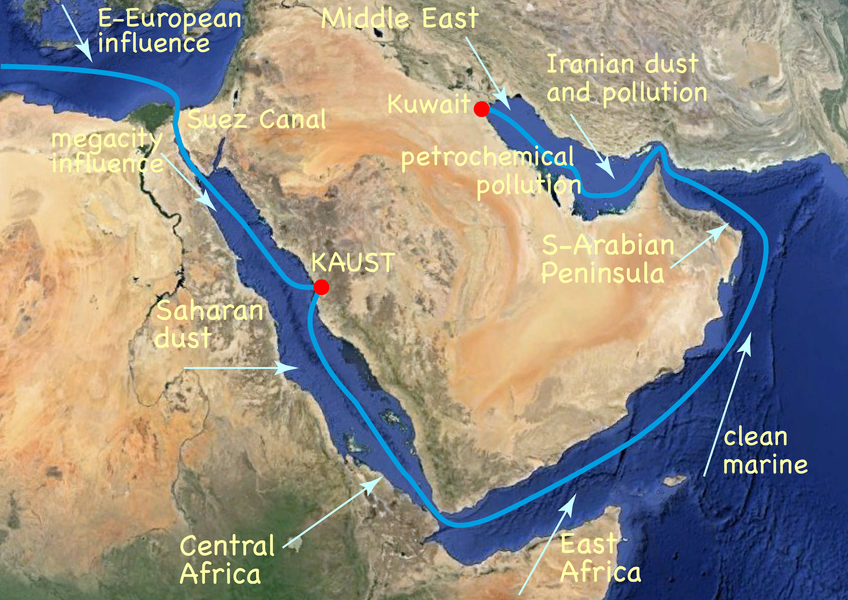
The scientific instruments were housed in five air-conditioned laboratory containers on the foredeck of the research vessel. They detected aerosol particles and gases in close proximity to the air inlets located at the bow. For the first time, ship-launched unmanned aerial vehicles (drones) were also deployed. The drones collected data on the vertical structure of the lower troposphere up to an altitude of two kilometers.
The AQABA instrumentation represents the most comprehensive atmospheric chemistry and aerosol payload taken on a ship to date. It provides a unique dataset to support studies on gas-aerosol interactions and will also improve studies on the atmospheric chemistry of dust, sea salt and other natural emissions from the land and sea, interacting with air pollution from a variety of sources.
Cooperation partners AQABA:
The collaborating institutions include the Max Planck Institute for Chemistry (Germany), the Kuwait Institute for Scientific Research (KSIR), the University of Cairo (Egypt), Zayed University (United Arab Emirates), the King Abdullah University of Science and Technology (KSA), the University of California San Diego (USA), the National Center for Scientific Research (Laboratory for Climate and Environmental Science, France) and the Cyprus Institute (Cyprus).
Background information on the expedition:
The Middle East is a populous region with a warm, arid climate. Heat extremes, scarcity of precipitation and photochemical air pollution can cause public health hazards. In addition, it has been observed that the atmospheric dust concentration has increased strongly over the past 15 years. Environmental research in the region needs to be based on up-to-date measurement data, in particular of atmospheric composition.
